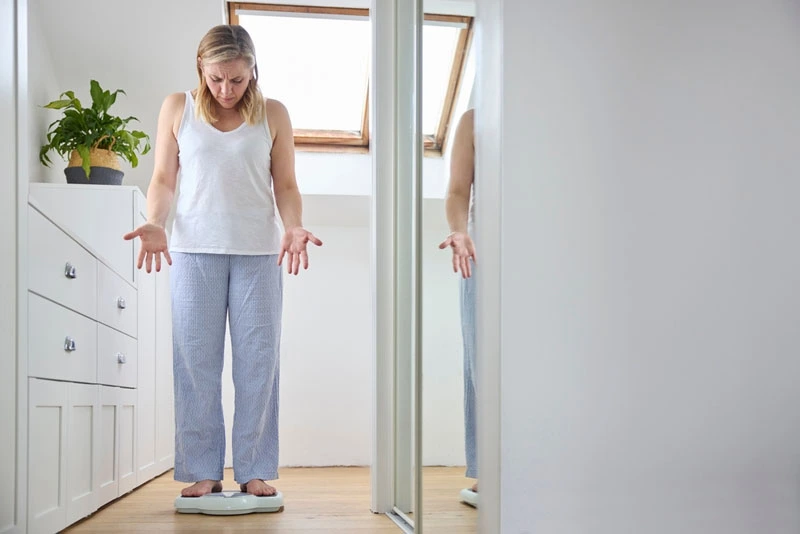Understanding the intricate details surrounding menopause is a significant element of women’s health. This life transition, marked by various changes and symptoms, is a universal phase every woman undergoes. Let’s dive deeper into what menopause entails and its implications.
Menopause and Its Duration: An Overview Menopause represents a significant stage in a woman’s life, signifying the cessation of the menstrual cycle. This phase is not abrupt but is a gradual process. With the average onset age around 51, menopause can span anywhere from 4 to 12 years, commencing with perimenopause and concluding with postmenopause.
Understanding the Stages of Menopause
- Perimenopause: As the initial stage, perimenopause generally manifests in the mid-40s and prolongs until the full onset of menopause. During this stage, estrogen and progesterone levels fluctuate, leading to some early menopause symptoms.
- Menopause Phase: This phase is distinctively marked by an entire year without menstruation. It’s the culmination of the reproductive cycle in a woman’s life.

3. Postmenopause: Following a year without any menstrual cycle, a woman enters the postmenopause stage, which persists for the remainder of her life. The lowest estrogen levels characterize this phase.
Symptoms of Menopause
Various symptoms may accompany menopause, including hot flashes, night sweats, mood swings, vaginal dryness, and sleep problems. These symptoms result from declining estrogen levels and can significantly impact a woman’s quality of life.
Coping with Menopause Symptoms
Treatment options are available for managing menopause symptoms, including hormone replacement therapy (HRT), medications, lifestyle changes, and natural remedies. However, consulting with a healthcare provider before starting any treatment is essential, as certain risks, like breast cancer or cardiovascular disease, may increase with HRT.
Menopause and Weight Changes
One common concern among women during menopause is weight gain. Fluctuating hormone levels can disrupt metabolism and fat storage, leading to weight changes.

Maintaining Healthy Weight During Menopause
Maintaining a healthy diet and regular exercise can help manage weight gain during menopause. Resistance and aerobic training can also benefit bone health and heart disease prevention.
Emotional Well-being During Menopause
Emotional well-being is another critical aspect during menopause. Mood changes, anxiety, and depression can result from hormonal changes in the body.
Managing Mental Health in Menopause
Healthy lifestyle habits, stress management techniques like meditation, and seeking help from mental health professionals can support emotional well-being during menopause.
Sleep Disruptions and Menopause
Sleep disturbances are a common issue for women going through menopause. Hot flashes, night sweats, and anxiety can lead to insomnia.
Coping with Sleep Issues
Establishing a good sleep routine and making the sleeping environment comfortable can help manage sleep disruptions. In some cases, a healthcare provider may recommend sleep aids or therapies.
Sexual Health and Menopause
Sexual health can be affected during menopause due to decreased estrogen levels leading to symptoms like vaginal dryness and decreased libido.
Maintaining Sexual Health
Several treatments can help manage sexual health-related symptoms, including vaginal moisturizers, lubricants, and low-dose estrogen therapy. Open communication with a partner and a healthcare provider can also be beneficial.
Factors Impacting the Duration of Menopause
Many factors can influence the length of menopause, including genetics, lifestyle, and overall health. For instance, women who smoke tend to reach menopause earlier than non-smokers.
Health Risks Associated with Menopause
Postmenopause can bring certain health risks due to reduced estrogen levels, such as osteoporosis and heart disease. Regular exercise, a balanced diet, and regular medical check-ups can help manage these risks.
Menopause Duration: How Long Will Symptoms Last?
Menopause is an inevitable transition in a woman’s life. However, the duration of symptoms varies widely among individuals. Let’s delve into understanding the time of menopausal symptoms and what influences them.
Factors Influencing the Duration of Symptoms
- Genetics: Family history plays a role. If your mother or sister experienced prolonged menopausal symptoms, you might as well.
- Lifestyle: Smoking can accelerate the onset of menopause and may exacerbate symptoms. Conversely, a balanced diet and regular exercise might help alleviate some symptoms.
- Overall Health: Existing health conditions, especially hormonal imbalances or issues related to the reproductive system, can influence the severity and duration of symptoms.
- Hormonal Fluctuations: The rate at which estrogen and progesterone levels decrease can dictate the intensity and duration of menopausal symptoms.
Common Symptoms and Their Typical Duration
- Hot Flashes & Night Sweats: These can start during perimenopause and last for about seven years, but in some cases, they can persist for over a decade.
- Vaginal Dryness: This can be a long-term symptom, lasting several years post-menopause. However, treatments are available to manage discomfort.
- Mood Changes: While mood swings and irritability might decrease after menopause, depression or anxiety can be influenced by various factors, not just menopause.
- Sleep Disturbances: Insomnia and sleep disruptions typically last 2-3 years but can be influenced by other health conditions.
- Sexual Health Issues: Decreased libido can persist but varies widely among individuals.
Managing the Duration and Intensity of Symptoms
- Hormone Replacement Therapy (HRT): For some women, HRT can provide significant relief from severe menopausal symptoms, but discussing the benefits and risks with a healthcare professional is essential.
- Lifestyle Interventions: Regular physical activity, a balanced diet, and avoiding triggers (like spicy foods or caffeine) can help manage symptoms.
- Alternative Therapies: Many women find relief from alternative treatments, from acupuncture to herbal remedies. However, their efficacy varies and should be discussed with a healthcare provider.
- Stress-Reduction Techniques: Practices like yoga, meditation, and deep-breathing exercises can be beneficial in managing mood changes and sleep disturbances.
In conclusion, while menopause is universal, the experience is highly individualized. Duration and intensity of symptoms vary widely among women, influenced by genetics, lifestyle, and overall health. Understanding and being proactive about management makes it possible to navigate this life phase with relative ease.
Frequently Asked Questions
How does menopause affect bone health?
Lower estrogen levels during menopause can lead to bone loss, increasing the risk of osteoporosis.
Does menopause lead to hair loss?
Some women may experience thinning hair or hair loss during menopause due to hormonal changes.
Can menopause affect sexual health?
Yes, menopause can affect sexual health, causing vaginal dryness and decreased libido.




